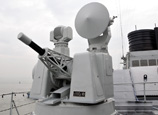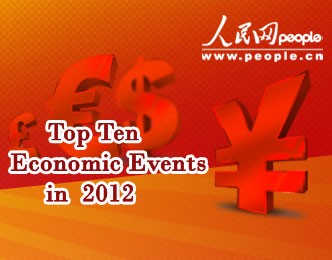
 |
| (File Photo) |
More importance attached to improving quality and efficiency
The growth of China's foreign trade in 2012 will come in at about 6 percent, while the Ministry of Commerce set a growth target of 8 percent for 2013, Commerce Minister Chen Deming told the annual meeting of the ministry on Friday.
It was seen as a prudent move amid a challenging external environment and growing efforts to expand domestic demand.
Earlier this year, China set a 10-percent goal for foreign trade growth throughout 2012.
China is the world's biggest exporter and second-largest importer. Imports and exports are projected to "exceed $3.8 trillion throughout 2012 while exports will account for about 11 percent of world exports", according to Chen.
"Our judgment holds that the international trade environment will remain challenging next year, and to thus take a more prudent move. We will attach more importance to improving the quality and efficiency of Chinese foreign trade next year," said ministry spokesman Yao Jian.
He added that China's share in global trade increased to 11.1 percent this year from 10.4 percent in 2011, while the country's foreign trade made progress in brand building, establishing marketing networks and research and development centers.
The first 11 months saw Chinese foreign trade increase by 5.8 percent year-on-year to $3.5 trillion. Export growth in November slowed sharply to 2.9 percent year-on-year, compared with an 11.6 percent surge in October, while imports were flat compared with a year earlier, according to data from the General Administration of Customs.
The commerce ministry told a news briefing on Dec 18 that China's foreign trade growth will face strong headwinds in 2013 as the world economy experiences slow growth and protectionism keeps rising.
The sluggish world economy reduced demand for Chinese exports while weak domestic demand accounted for shrinking imports along with the declining prices of imports.
"The 8-percent target for foreign trade growth can be achieved but with hard work as the country is already the world's biggest exporter and is losing its advantage of cheap labor while industrial upgrading demands improvement in workers' productivity and skills," said Li Xunlei, deputy CEO and chief economist of Haitong Securities in Shanghai.
Zhang Xiaoji, director-general of the Foreign Economic Relations Department at the Development Research Center of the State Council, said that foreign trade in 2013 will outperform this year's figures as domestic demand keeps growing and the quantitative easing policies in developed economies will increase demand for Chinese exports.
"But the government should draft a long-term strategy to improve foreign trade, including credit and financing support to increase exports to emerging markets and facilitate imports through cutting import duties and shortening the clearance period," Zhang said.
The ministry will stabilize exports through extending tax rebates and expanding export insurance. Exporters are encouraged to develop new competitive edges through building brands, research centers and international sales networks. Imports of energy and resource products, advanced equipment, key parts and consumption goods will be expanded to balance foreign trade, according to Chen.
Domestic demand
"While external demand is not encouraging, we will put more effort into expanding domestic demand, especially consumption, to propel economic growth in 2013," Yao said.
He added that consumption contributed 55 percent to China's economic growth in 2012.
"More effort will be given to modernize supply chains and develop new hot products as the subsidy to home appliance sales in rural areas will end in January," Yao said.
However, Li said that it may take a long time to boost domestic consumption, which requires the government to increase incomes and restructure government revenue and expenditure.














 China sends first oceangoing patrol vessel to South China Sea
China sends first oceangoing patrol vessel to South China Sea


![]()
